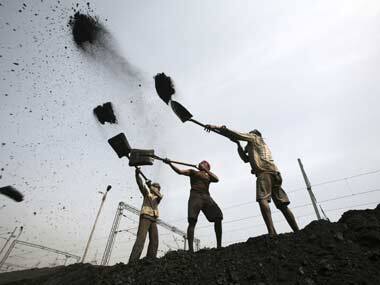Given the mess in the coal sector, it would be natural to believe that all that the coal ministry is pre-occupied with is fire-fighting. While the bulk of the ministry’s energies are surely taken up by that, serious efforts are being made simultaneously to anticipate problems and provide for them. One such issue is that of speedy and efficient transportation of coal - a much neglected area and one which could become a potential bottleneck, according to coal sector experts. As coal blocks get auctioned and production gets underway and Coal India, hopefully, starts improving its productivity, the question of how this coal is to be got across to consumers will be a serious one. The coal ministry and the railways are now working closely on this. The idea is to marry the financial muscle of Coal India, which is flush with funds, with the technical expertise available with railways, according to senior coal ministry officials. There’s going to be a two-pronged approach to the transport issue. One is to strengthen existing rail lines and speed up on-going railway projects. There are around 30 of these and coal secretary Anil Swarup, officials say, will be holding weekly meetings to review progress of these projects. The first such meeting is planned for 8 January. [caption id=“attachment_2032109” align=“alignleft” width=“380”]  The coal ministry and the railways are now working closely on resolving issues related to transportation. Reuters[/caption] Swarup is reportedly also planning to visit states to take up issues hampering progress. This appears to be a continuation of what he did as head of the Project Monitoring Group in the Cabinet Secretariat that the previous government had set up to get stalled projects up and running. In addition, Coal India reportedly plans to add 200 rakes to its existing set of 250 rakes; orders for 34 rakes have already been placed and they should be available by March. Far more significant is the second prong, which is to take up new projects. According to ministry officials, a tentative list of 51 railway lines to service inaccessible areas has been drawn up. The ministry and the railways will discuss the feasibility of these and decide on which ones are to be taken up. These projects will be implemented through special purpose vehicles (SPV) or joint ventures with state governments and the private sector, and could be independent profit centres. The commercial viability of each of these projects will be assessed before they are taken up. The SPV route will manage to cut through the railway bureaucracy, which can be quite dilatory at times. The response from the railway ministry, say officials, has been very positive, with railway minister Suresh Prabhu himself taking a keen interest in this. He should be, because this issue is one that the advisory group for integrated development of power, coal and renewable energy he headed has flagged in its report submitted to the government recently. Even before the report was submitted, the ministry has been working on some of the ideas it contained, say officials. The forward-looking plans for transportation of coal are particularly important given the fact that there are serious efforts under way to ramp up production by Coal India. According to senior officials, in an exercise helmed by Swarup, the ministry is drawing up a roadmap for enhancing Coal India’s production to 1 billion tonnes by 2019 (a virtual doubling over current production levels). The roadmap, the officials say, has mine-wise plans, with a lot of emphasis on mechanisation of mining operations as well as loading and unloading of coal. The roadmap will be finalised after discussions with the new Coal India chairman, S. Bhattacharya, once he settles into his job. Human resource issues dogging Coal India – loss of mid-level talent, unions – will also be addressed as part of this roadmap. Things certainly seem to be hotting up in the near-moribund coal sector. Coal India has finally got a chairman, after months of remaining headless. A Coal Project Monitoring portal has been set up to monitor the various clearances and progress of coal mining projects. This too seems to be a Swarup touch from his Project Monitoring Group stint. The process of auctioning the coal blocks whose allotment had been cancelled by the Supreme Court is picking up pace. The auction process for the first set of 22 coal blocks was started on 25 December and the allotment should get done by around 20 March, so that mining can continue seamlessly from 31 March (these were the blocks where mines were operational and the Court had allowed mining to continue till 31 March). Auctions for the next tranche of 32 blocks will kick off on 7 January and should get over by 2 April. The third tranche will come up for auction around mid-January and should get allotted by mid-April. If all goes well and these ambitious plans do get implemented, it will be good news for the economy.
If all goes well and these ambitious plans do get implemented, it will be good news for the economy
Advertisement
End of Article


)

)
)
)
)
)
)
)
)



